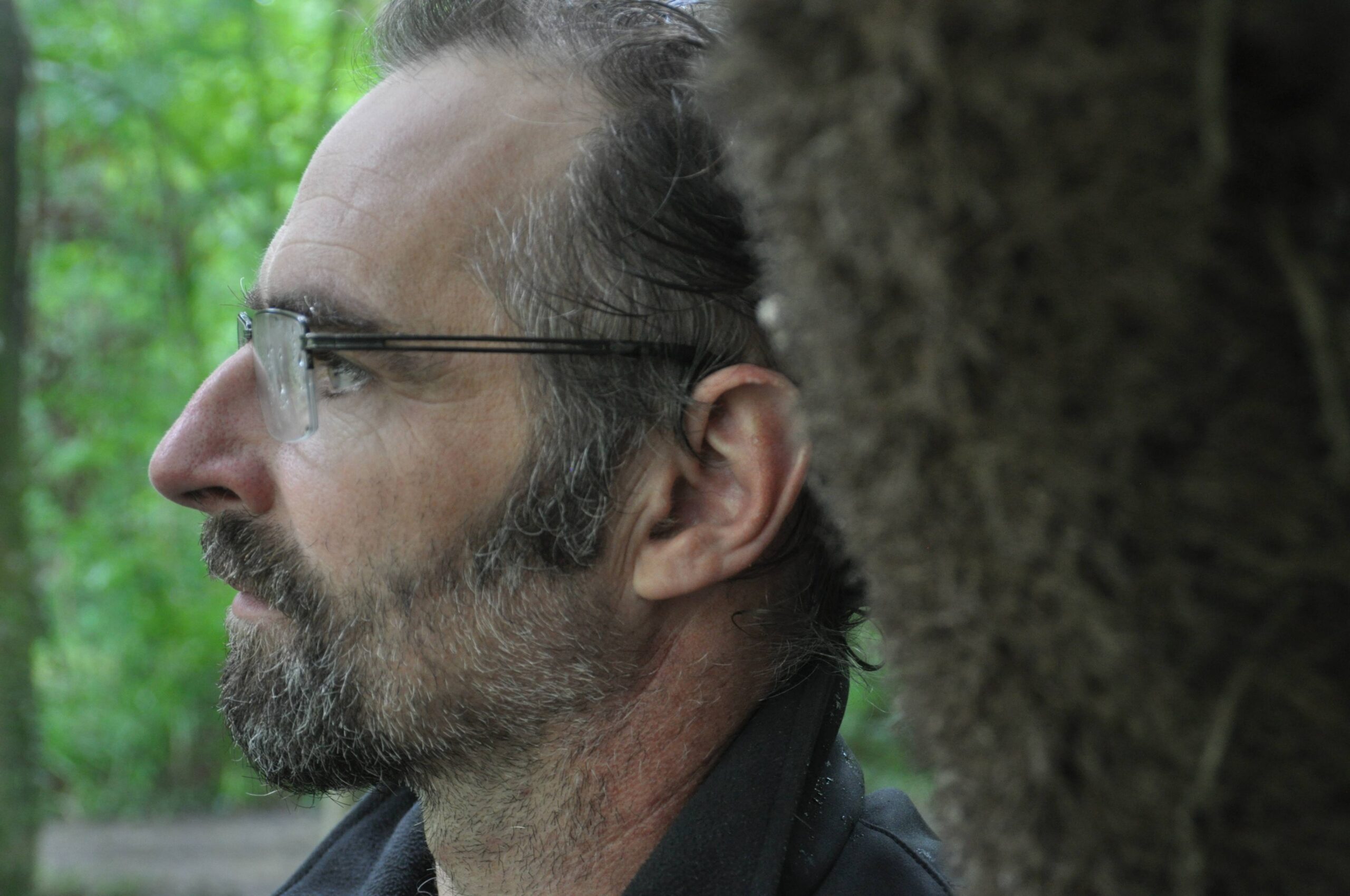Eric Lenoir
Landscape designer, author
Spring 2024

- Landscaping
- Literature
- Miami
- San Francisco
“The Residency will feed my global works that target territorial food resilience for all, reducing biodiversity collapse, urban well-being, environmental and vernacular knowledges, sustainability, and facing global warming effects.”
I was born and raised in the suburbs of Paris from the mid-1970s to the end of the century, so I was struck by the full force of urbanization and the end of France’s post-war economic boom known as the Trente Glorieuses (“The Glorious Thirty”). Mine was a period tainted with impoverishment, social crises, and concrete. Fortunate enough to find some points of comparison from hearing accounts about nature, gardens, or “green spaces,” I always had a drive to understand the dynamics of society, politics, and ecosystems. I wanted to do my bit to repair or improve our conditions for hosting living creatures—including humans—and help resolve the world’s diverse socio-environmental issues.
I thought that landscaping could be a worthwhile tool for addressing these questions, so I went to study at Ecole du Breuil-Arts et Techniques du Paysage, in Paris, where I learned the wonderful fundamentals of my trade. I also decided to distance myself from some of the practices there, deeming them harmful, and ill-adapted to the modern world and the needs of those who inhabit it. Out of militant counterculture, frenzied naturalism, a need to create, and my ultra-urban-yet-rural roots, I built an approach to landscaping and gardens. This approach is steadfastly devoted to the common good, biodiversity, resource conservation, and the fight against various forms of precarity, including the erosion of knowledge and means of resilience in a world of constant upheaval.
Eric Lenoir has authored several books, including Petit Traité du jardin punk (for which he won the St Fiacre Prize in 2019) and Le Grand Traité du jardin punk, published by Éditions Terre Vivante. In them, he defines and explores methods of demonstrating that a lack of resources, understanding, and economic means does not detract from our ability to create landscapes, improve the public space, and bring more biodiversity into our gardens.
His creations include a number of experimental gardens linked to issues of biodiversity, the common good, and knowledge transmission. He also supports various individuals at the grassroots level around questions of local food resilience and biodiversity conservation.
Integrated in a lifetime of exploration works, my project aims to study the rewilding actions in urban and artificialized zones (cities, fields, mines, industrial areas…) and those that led to convert these areas into food providing, ornamental and educational gardens.
I would like to understand which dynamics operate, including those that occur by the help and wills of authorities through national and local programs, and those involved by spontaneous local citizens motivation or nature itself. I will observe how public space is shared on these occasions and how private property sometimes evolves to become part of the commons.
I will also compare the socio-ecological effects and benefits of the various versions of these conversions depending if they are due to gentrification -like seen in Portland or San Fransisco- or to poverty increase spots/deindustrialization -as in Detroit or Oakland-. This comparison may show how these different models should last through years and systemic cycles, throughout global warming effects and social changes.
Communities gardens, inner cities biodiversity reserves, urban farming programs and more have numerous shapes, targets and components. What leads to choose one instead of another ? Why and where some are very efficient and some fail ?
More than bringing perfect solutions to any issue, I wish my Residency at Villa Albertine to be a fantastic tool to get an objective overview of the interactions between social, urban and natural ecosystems that enlarges the field of possibilities in landscape design and management, urbanism, environmental and food territorial resilience.
The Residency will feed my global works that target territorial food resilience for all, reducing biodiversity collapse, urban well-being, environmental and vernacular knowledges, sustainability, and facing global warming effects. This also enhance the philosophical field where some of us -including myself- try to understand how human and non-human beings coexist
The United States is a fantastic social and natural testing ground where landscaping has for a long time, beginning in the 19th century, incorporated wilderness within large urban parks. Cities like San Francisco or Portland have spearheaded methods of urban planning and lifestyles that preserve biodiversity and the broader environment. I am particularly drawn to Portland due to the demand of its Native communities for spaces to be adapted to their traditional practices, whether this involves gathering in parks for community events or returning natural spaces to their pre-colonial state.
In San Francisco, I hope to meet scholars from the universities of Berkeley, Stanford, Davis or Santa Cruz who study local sustainability and rewilding, as well as agronomic issues in a state that is already being hit hard by the effects of climate change. I will also meet Alice Waters, founder of the Edible Schoolyard program and sponsor of École comestible, a project that I am involved with in France. The alternative communities of Point Reyes will also have plenty to teach me, as will the various individuals involved in the very active community gardens of Oakland, which exist in a more grassroots context than that of San Francisco or Portland.
Lastly, I intent to spark exchanges with other residents of Villa Albertine, both past and present.
In partnership with

Éditions Rivages
Rivages Editions was founded in 1984, and publishes mainly fiction: French and foreign literature, thrillers and detective stories, graphic novels and fantasy/SF. For some years now, we have also been publishing humanities texts in the Bibliothèque Rivages and Petite Bibliothèque Rivages collections.
